INSIDE ISSUE 18.10 | MARCH 8, 2019
NEWS: S.C. House could be buzzkill on medical marijuana
BRIEFS: High-speed internet, hemp, budget debate, crossover and more
TALLY SHEET: Budget introduced as well as bills on ethics, voting, more
COMMENTARY, Brack: Lots left to do if General Assembly wants real impact
SPOTLIGHT: S.C. Hospital Association
MY TURN, Burgess: S.C. needs political will to do what’s right to really educate students
FEEDBACK: Good article on pending solar legislation
MYSTERY PHOTO: Wow, what a Lowcountry house!
S.C. ENCYCLOPEDIA: Reconstruction, part 2
S.C. House could be buzzkill on medical marijuana
By Lindsay Street, Statehouse correspondent | With the Senate abuzz over steady progress on proposed legislation to approve medical usage of marijuana in South Carolina, some House members remain stony on the latest attempt.
“I’m ready for it,” former SLED agent and S.C. Rep. Eddie Tallon, R-Spartanburg, said with a broad grin. “Ready to vote it down.”

House Speaker Pro Tempore Tommy Pope, R-York, who served with Tallon at SLED and is a former solicitor, also balked at a state-level medical marijuana bill.
“I don’t like the inconsistency that we are going to abide by some federal laws and not others,” Pope said, adding that he would not vote for such legislation no matter how tightly controlled. “The answer of what’s going to happen when it gets over here? I do not know.”
House Agriculture Committee Chairman David Hiott, R-Pickens, said many House members tend to “clam up” when the topic arises.
“Everybody knows it’s coming but no one wants to hurry up and get to it,” Hiott said.
But advocates for the legislation say the House has enough votes to pass it and override a potential gubernatorial veto. They cite two recent events as demonstrating the growing support in Columbia: a recent anti-medical marijuana press conference by the state attorney general and others, and an anonymous mailer sent out this week targeting the key proponentof medical marijuana in the Senate.
“They wouldn’t be doing that if they didn’t think there was a lot of support for it,” said House sponsor Jonathan Hill, R-Anderson.
Where the bill stands
The “South Carolina Compassionate Care Act” is in subcommittee in the Senate Medical Affairs Committee with the lead sponsor GOP Sen. Tom Davis of Beaufort, still at work on ironing out details since February. The House’s version has yet to be scheduled in the Medical, Military, Public and Municipal Affairs Committee (3M) where Hill serves as vice chair.

Davis has scheduled meetings to make sure the bill is “thoroughly vetted” by physicians, law enforcement and other stakeholders. He said the Senate is beyond whether the bill should be passed, but instead focused on what the bill should look like. Other top senators have confirmed this sentiment.
Davis said the bill is designed to be the most narrow, tightly-regulated medical marijuana law in the nation. He said it would show other states how to do medical marijuana “right.” That means strict limitations on the amount of marijuana available to patients and limiting conditions acceptable for prescriptions.
In the House, Hill said he is working closely with 3M Committee Chair Leon Howard, D-Richland, on moving the legislation to a floor vote. Hill said he did not intend to to wait for Davis’ bill to pass the Senate to begin work on the House version.
Both bodies’ committees sent similar bipartisan medical marijuana bills to the floor last year where the measures met a quiet death.
Background
Thirty four states have medical marijuana or cannabis programs. South Carolina is one of 12 states allowing the use of “low THC, high cannabidiol (CBD)” products for medical reasons in limited situations. Today, CBD use is popular across the state.
In South Carolina, medical marijuana proposals dates back to 1980 with the S.C. Controlled Substances Therapeutic Research Act. The law, which was ratified though never funded, sought to make marijuana available to “cancer chemotherapy patients, radiology and glaucoma patients under certain conditions for the purpose of alleviating the patient’s pain and discomfort.”
It took another 27 years before the Senate weighed another medical marijuana bill. But, in 2007, it died in committee.
Then, five years later, libertarian-leaning, first-term Davis proposed a bill seeking the legalization of cannabidiol, a plant oil derived from marijuana’s less intoxicating cultivar hemp. The bill was called Julian’s Law, and its proponents championed cannabidiol products for children suffering from epilepsy and other conditions.
Since 2014, there have been numerous iterations of medical marijuana to fail in both bodies. Davis has mostly led the charge in the Senate, and Democrats have mostly pushed the measure in the House. In recent years, the House has seen growing bipartisan support. This year, the House version of Davis’ bill was sponsored by House Judiciary Chairman Peter McCoy, R-Charleston, giving proponents hope for better chances.
Strong stances on both sides
McCoy declined comment for this story. But he took to Twitter this week to defend his support of the Compassionate Care Act.
“Proud to stand with Tom Davis to continue this fight,” McCoy wrote. The Wednesday tweet was in response to an anonymous mailer accusing Davis of trying to turn South Carolina into a “pot party” through advocacy of medical marijuana. The flier featured women in bikinis and Davis in a Hawaiian shirt.
Another sponsor, Charleston Democratic Rep. Leon Stavrinakis wrote on Twitter: “To whoever sent this trash, thanks in advance for your help getting our bill passed.”
But others, such as House Speaker Jay Lucas, declined comment on the issue.
House opponents frequently cited law enforcement or the S.C. Medical Association — an organization of doctors that has opposed medical marijuana — as to why the bill will never work in the state.
‘The tide is turning’
The House’s longest-serving woman lawmaker, Rep. Gilda Cobb-Hunter, D-Orangeburg, supports medical marijuana proposals. She said she has witnessed a gradual warming toward legalizing the drug for patients who need comfort..
“I have seen what appears to be a slight uptick in support for medical marijuana and that is due largely to parents advocating for it on behalf of children, and physicians and caregivers who are trying to impress upon us that it is not the evil weed,” Cobb-Hunter said. “I am cautiously optimistic, if it gets out of the Senate, we will get it passed because we have a lot of new members … The tide is turning.”
Hill said he expects that while a few in the House have made up their minds, many House members will be “willing to listen to facts and reason and their constituents.” Medical marijuana has support from 72 percent of S.C. respondents in a recent poll.
He said that willingness to listen could also extend to Gov. Henry McMaster, a former state attorney general and U.S. attorney who has spoken against medical marijuana in the past.
“He’s also shown he’s one to follow where the political winds blow. Even if he followed through on a threat to veto it, if we have the votes to get it passed in House and Senate, we will have the votes to override a veto,” Hill said.
And if it doesn’t happen this year? Medical marijuana advocates vow the issue will be brought up again until it does.
“We’re going to stay the course and make sure the job is done,” Hill said.
- Have a comment? Send to: feedback@statehousereport.com
High-speed internet, hemp, budget debate, crossover and more

By Lindsay Street, Statehouse correspondent | A grant fund aimed at bringing high-speed internet access to underserved areas of the state is being considered by a House committee.
A subcommittee of the House Labor, Commerce and Industry Committee this week met to discuss H. 3780, known as the Growing Rural Economies with Access to Technology (GREAT) Program. The lead sponsor is Anderson Republican Brian White, former chairman of the House Ways and Means Committee. He said the program goes hand-in-hand with a technical college scholarship bill he sponsored and is currently working through the Senate.
White told Statehouse Report that the utilities subcommittee will continue to meet to get details of the bill settled. The first meeting was Wednesday, and White said the next meeting will occur over the next two weeks. Nothing has been scheduled as of deadline.
In other news:
Hemp hits Senate floor. A House bill that allows hemp cultivation through an application in the state could be addressed by second and third reading as early as next week, according to Senate Agriculture and Natural Resources Committee Chair Paul Campbell, R-Charleston. The bill aims to match federal legislation legalizing growing the cannabis cultivar known for its industrial and textile use. Hemp is also used for manufacturing medicinal cannabidiol. Under the proposed bill, would-be growers will apply for a permit through the state Department of Agriculture. South Carolina previously only allowed up to 40 farmers to grow hemp as part of a tightly-controlled pilot program. Campbell said if the Senate approves the bill quickly, farmers in the state could be growing the crop by this summer.
Budget debate. The House will begin debating the state’s $9.3 billion budget Monday on the floor. House members aren’t expecting it to take too long to pass — Tuesday or Wednesday could be the day they wrap up, sources said. They give credit to freshman budget writer Rep. Murrell Smith, R-Sumter, for working with many other lawmakers and stakeholders during the budget process.
Crossover. The date where contentious pieces of legislation are considered dead is April 11. After April 11, a supermajority is needed to take up bills approved by the other chamber.
Weekly update on Palmetto Priorities
 Throughout the legislative session, we’ll provide you relevant updates related to our list of Palmetto Priorities, which are 10 big policy areas where major progress is needed for South Carolina to escape the bottom of lots of lists. Over the last week:
Throughout the legislative session, we’ll provide you relevant updates related to our list of Palmetto Priorities, which are 10 big policy areas where major progress is needed for South Carolina to escape the bottom of lots of lists. Over the last week:
EDUCATION: House moves forward as Senate mulls. The House passed its version of education reform this week. It includes raising the minimum pay for new teachers and gives the state superintendent more ability to take over failing school districts. The Senate is already planning some sweeping changes, including adding a teacher bill of rights and limiting class sizes. Read more about the Senate’s version.
POVERTY: Anti-poverty campaign launches in state. Working Hero South Carolina launched this week. The statewide campaign will work to ensure that every eligible South Carolinian gets the earned income tax credits. The campaign is led by communications strategist and community activist Rania Jamison, who will be speaking about the new effort at Charleston Black Expo Economic Empowerment Summit March 9.
HEALTH CARE: Feds trash state regulations on hospital growth. The U.S. Department of Health and Human Services has issued a report saying state regulation of hospital growth is often ineffective. In South Carolina, the state Certification of Need and Health Facility Licensure Act requires any health care system or company that wants to build a new facility, add beds to an existing facility, purchase medical equipment more than $600,000 or spend more than $2 million on a capital expenditure to receive approval from the S.C. Department of Health and Environmental Control. The law has come under fire, particularly in areas of high growth, such Berkeley County, where competing hospitals have sought permits and entered into drawn-out legal battles last years. Read more.
GUNS: Waiting-period bill filed. S.C. Sen. Gerald Malloy, D-Darlington, has introduced S. 605, which would require a 10-day waiting period for criminal background checks for anyone wanting to transfer a gun, with several provisions.
POLITICS: Primary, voting machines, campaign disclosure and dark money. Dark money featured large this week in Columbia after an anonymous mailer deriding medical marijuana and Sen. Tom Davis, R-Beaufort. Sen. Paul Campbell said the state has “no control” over such measures while lawmakers have to make regular reportings.
“You can have big money coming in to try to influence what is coming into the General Assembly,” he told Statehouse Report. “I just want them to go through the same qualifications I have to go through.”
Also this week, Rep. Gary Clary, R-Pickens, introduced two campaign disclosure bills: (H. 4191) that would require more information from lawmakers and H. 4192 that seeks people who make independent expenditures of more than $500 to file a state report, with other provisions.
In elections, Sen. Brad Hutto, D-Orangeburg, introduced S. 628 that would allow in-person and mail-in absentee voting in presidential preference primaries, with several provisions. And Speaker Jay Lucas, R-Darlington, introduced H. 4157 that gives a deadline for offers for a new statewide voting machine and establishment of a special panel to evaluate proposals.
Looking ahead
Click below for other items coming up in the Statehouse:
- House calendar
- Senate calendar
- Have a comment? Send to: feedback@statehousereport.com
Budget introduced as well as bills on ethics, voting, more
![]() Staff reports | Members of the General Assembly filed almost 100 new bills and resolutions over the last week from the formal filing of the state budget to bills dealing with presidential primaries and ethics reform. Among the highlights:
Staff reports | Members of the General Assembly filed almost 100 new bills and resolutions over the last week from the formal filing of the state budget to bills dealing with presidential primaries and ethics reform. Among the highlights:
IN THE HOUSE see all House bills)
State budget. H. 4000 (Ways and Means) is the annual legislative spending bill, which starts in the House. The $9 billion appropriations bill is scheduled to be debated next week and, upon passage, sent to the Senate. H. 4001 (Ways and Means) is the related annual capital reserve fund spending bill.
Voting machines. H. 4157 (Lucas) is adeadline for offers for a new statewide voting machine and establishment of a special panel to evaluate proposals.
Offshore drilling. H. 4163 (Mace) is a resolution expressing opposition by the House to offshore drilling. It had a bipartisan group of 39 mostly coastal lawmakers.
Campaign disclosure, H. 4191 (Clary) seeks several campaign accountability changes that appear to seek more information to be disclosed by lawmakers, particularly as related to conflicts. H. 4192 (Clary) seeks people who make independent expenditures of more than $500 to file a state report, with other provisions.
Energy drinks. H. 4198 (Howard) seeks to keep energy drinks from being sold to minors, with several provisions.
Domestic violence. H. 4212 (Stavrinakis) calls for several measures to strengthen orders, reporting and other measures related to domestic violence.
IN THE SENATE see all Senate bills)
Torts. S. 591 (Massey) seeks to make allocation changes for fault for torts.
Child care. S. 595 (Shealy) would keep child care facilities from employing someone who is registered as a sex offender, with several provisions, including background check requirement updates.S. 601 (Shealy) is similar, but related to foster care facilities.
Guns. S. 605 (Malloy) would require a 10-day waiting period for criminal background checks for anyone wanting to transfer a gun, with several provisions. S. 606 (Malloy) is related.
Presidential primary. S. 628 (Hutto) would allow in-person and mail-in absentee voting in presidential preference primaries, with several provisions. H. 4215 (Rutherford) is similar.
BRACK: Lots left to do if General Assembly wants real impact
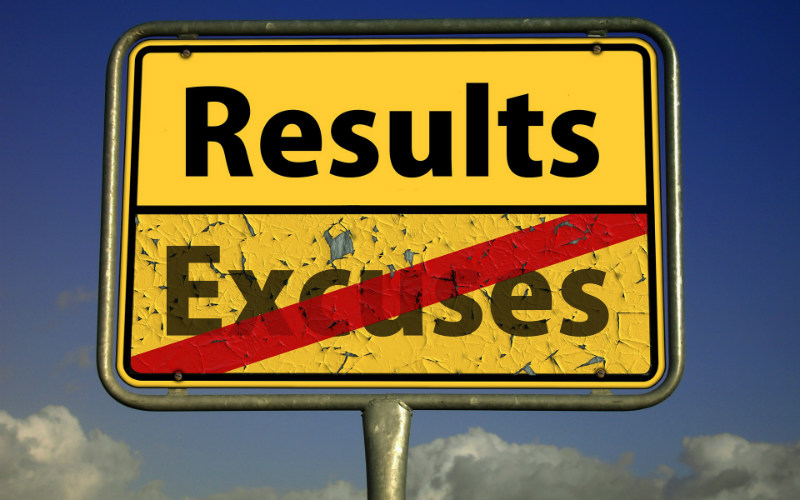
By Andy Brack, editor and publisher | With two months left, the General Assembly still has a lot of work to do if it really wants to accomplish anything this year.
 Despite headlines of progress, lawmakers of both chambers have passed five pretty minor bills, four of which became law. Gov. Henry McMaster vetoed a measure on the election of water and sewer district commissioners for Bath, Langley and Clearwater (wherever they are).
Despite headlines of progress, lawmakers of both chambers have passed five pretty minor bills, four of which became law. Gov. Henry McMaster vetoed a measure on the election of water and sewer district commissioners for Bath, Langley and Clearwater (wherever they are).
So here’s a rundown of what the House and Senate could do if they passed major legislation being batted around the Statehouse. Otherwise, the inertia of the status quo will continue to win.
At the top of everyone’s list this year is reforming the state K-12 education system. The S.C. House took a big step this week to move the ball forward by passing a bill that originally was 84 pages long. Amended in committee and on the floor, the bill being pushed hard by House Speaker Jay Lucas is O.K., but it’s half a haircut if there is to be real reform. To wit:
Teacher pay. The bill calls to pay new teachers more. Existing teachers? The legislature will have to take up increasing their pay in the annual state budget, now at more than $9 billion. Everybody is talking a good game about paying all teachers more, but if lawmakers don’t use a good chunk of recurring surplus funds to give state teachers a big pay hike and stop the drain of their talents from state schools, all of Lucas’s reform will be for naught.
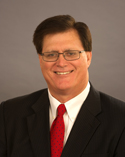
Accountability. The Lucas bill rightly pushes to allow the state superintendent of education to have more of a say in fixing failing schools and to stop the near-incessant standardized testing of students. Instead of more tests, we need more hours of instruction without all of the red tape.
Student cost. Unfortunately, the House bill gets rid of an old metric for gauging how the state is spending money on students. The “base student cost” is a mandated formula on how much to spend on each pupil. In the new bill, that cost is wrapped into a new metric, “per pupil spending,” which also includes teacher spending. Redefining how much is being spent makes it look like more overall, but we’re told if you separate the old base student cost, funding actually will drop overall by $18 per student — a loss of more than $12 million dollars. We hope the Senate will continue to use the “base student cost” measure for education spending so education advocates can keep up with how proposed spending actually compares to past years’ spending. (Note: For just about the last decade, state lawmakers have underfunded K-12 base student cost to the tune of more than $4 billion. Changing the definition may let them continue to get away with it.)
There are other important proposals before state lawmakers:
Medical marijuana. There’s a big push for the Senate to approve medical uses of marijuana to ease pain and suffering for many in the state. While state Sen. Tom Davis, R-Beaufort, may be able to get it through the Senate, the House — particularly legislators from the red hat of Upstate districts — will be hard-pressed to vote for marijuana after almost 50 years of “just say no” rhetoric.
Charleston loophole. State legislators need to stop fiddling and close the “Charleston loophole” so people who shouldn’t have guns don’t get them.
Solar energy. The House has approved a bill that promotes the continued growth of residential solar energy. The Senate needs to do the same quickly, or risk losing thousands of good jobs.
Santee Cooper. The brakes are on efforts to sell the state-backed Santee Cooper utility. Good. There’s no point of selling a great resource at a bargain basement price. Hold on to it, restructure it and make it more efficient.
Ban on plastic bag bans. It makes no sense for the party of limited, more local government, the Republican Party, to be bashing local governments that want to keep their communities cleaner by banning plastic bags.
New voting machines. The state’s current machines are far too old. Lawmakers need to spend appropriately to get new machines with paper trails so voters can track their ballots.
- Have a comment? Send to: feedback@statehousereport.com.
SPOTLIGHT: S.C. Hospital Association
 The public spiritedness of our underwriters allows us to bring Statehouse Report to you at no cost. This week’s spotlighted underwriter is the South Carolina Hospital Association, the Palmetto State’s foremost advocate on healthcare issues affecting South Carolinians. The mission of SCHA is to support its members in addressing the healthcare needs of South Carolina through advocacy, education, networking and regulatory assistance.
The public spiritedness of our underwriters allows us to bring Statehouse Report to you at no cost. This week’s spotlighted underwriter is the South Carolina Hospital Association, the Palmetto State’s foremost advocate on healthcare issues affecting South Carolinians. The mission of SCHA is to support its members in addressing the healthcare needs of South Carolina through advocacy, education, networking and regulatory assistance.
Founded in 1921, the South Carolina Hospital Association is the leadership organization and principal advocate for the state’s hospitals and health care systems. Based in Columbia, SCHA works with its members to improve access, quality and cost-effectiveness of health care for all South Carolinians. The state’s hospitals and health care systems employ more than 70,000 persons statewide. SCHA’s credo: We are stronger together than apart.
- To learn more about SCHA and its mission, go to: http://www.scha.org.
S.C. needs political will to do what’s right to really educate students
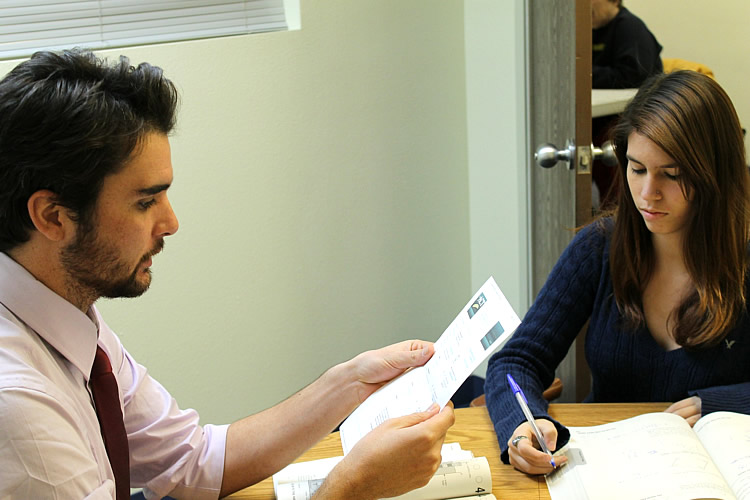
By Gary Burgess, special to Statehouse Report | Efforts at K-12 public education reform has not produced appreciable improvement in the academic achievement of public school students regardless of the amount of money spent.

We cut out recess. We added recess back. We cut out field trips and we added field trips back. We stressed neighborhood schools. We increased the requirements for persons wanting to teach, we added requirements for students to be promoted and we added requirements for graduation. We increased testing; we decreased testing. We required training for boards. We focused on parenting. We increased the requirements for attending to students with special, social and medical needs. We increased school security. And we added more co- and extracurricular activities; we augmented teacher’s salaries; we created more parental and community boards; we emphasized technical education; and we implemented Read to Succeed. Still, we are no further along in K-12 public-education in South Carolina than we have been.
It’s like sending a kid to a reformatory and expecting that child to be reformed. Reform is not likely to happen because the environment is antithetical to reform. The current system of public schooling is antithetical to educating the masses. Our schools are great at schooling but mediocre at educating. Here are some examples in the current House-approved bill.
- Read to Succeed: Our students are less literate after spending millions, according to National Assessment of Educational Programs (NAEP). How many reading assessments, reading coaches and reading specialists are needed to teach a child to read?
- Mandating parental orientation focused on valuing an education.
- Not allowing students with enough credit to graduate to graduate at the end of their junior year.
- The state superintendent not immediately turning over low-performing schools to organizations with a proven record of academic achievement to reduce the academic harm to students and the burden on taxpayers.
- Not consolidating districts with less than 1,500 students if their students have done well on standardized tests. (Consolidation should be about economies of scale and saving money, not about how student groups have historically performed on standardized test.)
- Holding school board members criminally accountable, personally and collectively, and requiring boards to be trained in budgetary matters, and how to effectively evaluate the curriculum and instructional program in districts they have been elected to oversee. The South Carolina School Boards Association and state Superintendent of Education Molly Spearman must be directed by the General Assembly to stop with their ill-advised mantra — boards hire a great superintendent and get out of the way.
It is my hope that the current bill lives up to its charge; however, unless those who are the real power brokers in South Carolina design a K-12 public education system where all children can learn, regardless of the “tribe” they belong to, our great state will continue to be ranked among the lowest-performing states academically with regard to public education. National tests, which are both reliable and valid, such as the ACT, SAT and NAEP, will continue to reveal that effort and money will be spent in vain if we do not re-design our public education system to place all children in high-quality curricula and instructional programs from the time they enter the schoolhouse door until they graduate.
We know who the children are who academically anchor South Carolina down to the bottom of the national K-12 public education barrel. Do we have the moral courage and the political will to stop scapegoating those students and their communities and do what is necessary for their success? The correct answer to that question is the key to a vibrant future for South Carolina. Money is needed, but money is not the answer!
Gary L. Burgess Sr., a Republican who lost in an eight-way 2014 GOP primary that included Spearman, is a member of the Anderson County Board of Education.
- Have a comment? Send to: feedback@statehousereport.com..
FEEDBACK
FEEDBACK: Good article on pending solar legislation
To the editor:
![]() Thanks for the excellent solar article [Tynan, 3/2/19] and good review. I think the House bill will be interesting to watch in the Senate.
Thanks for the excellent solar article [Tynan, 3/2/19] and good review. I think the House bill will be interesting to watch in the Senate.
It we be the first time we see the full force of Dominion’s new “Southeast Energy Group” as it will lobby strongly to fix this bill to meet its objective. Keep up the good work.
— Larry Sullivan, Summerville, S.C.
Send us your thoughts … or rants
We love hearing from our readers and encourage you to share your opinions. But you’ve got to provide us with contact information so we can verify your letters. Letters to the editor are published weekly. We reserve the right to edit for length and clarity. Comments are limited to 250 words or less. Please include your name and contact information.
- Send your letters or comments to: feedback@statehousereport.com
MYSTERY PHOTO: Wow, what a Lowcountry house
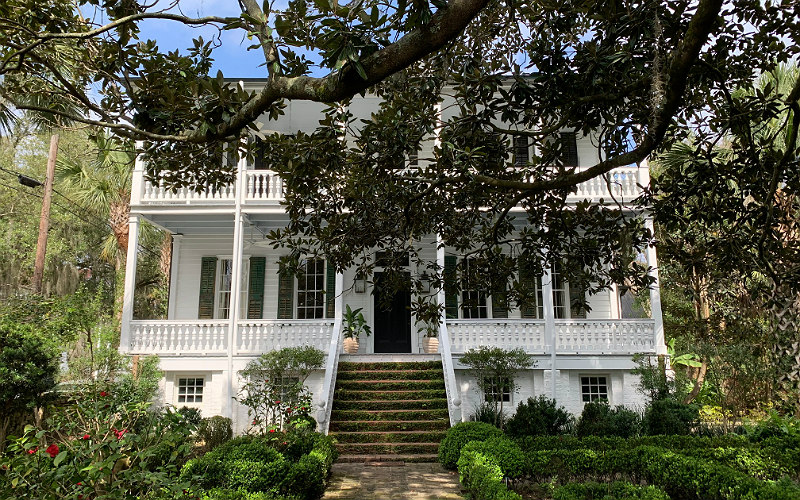
Now a private residence, this house has particular significance, according to a reader who submitted the picture. Two-part mystery this week: Where is the house and what is its significance. Send your guess to feedback@statehousereport.com. And don’t forget to include your name and the town in which you live.
Our previous Mystery Photo
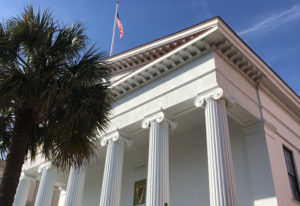 Our March 1 mystery, “Look for a telling clue for this mystery” was the perfect pre-St. Patrick’s Day photo. It showed Hibernian Hall on Meeting Street in Charleston (the harp with the green background was the clue).
Our March 1 mystery, “Look for a telling clue for this mystery” was the perfect pre-St. Patrick’s Day photo. It showed Hibernian Hall on Meeting Street in Charleston (the harp with the green background was the clue).
Congratulations to 14l sleuths who correctly identified the building: Judy Hines, Jim Lundy, Beth McGuire and Addison Ingle, all of Charleston; Charles Davis of Aiken; Patricia Wolman and David Lupo, both of Mount Pleasant; Gwen Strickland of Marion; Don Clark of Hartsville; Frank Bouknight of Summerville; Steve Willis of Lancaster; Jay Altman of Columbia; George Graf of Palmyra, Va.; and Charles Boyd of Hanahan;
Lupo provide information from what the National Park Service wrote about the building when it became a National Historic Site in 1973: “Completed in 1840, this is the only extant building associated with the Democratic Convention of 1860, one of the most critical political assemblies in the history of the United States. At Charleston, the fate of the old party system was sealed: The Democratic Party was shattered and Republican victory assured in the fall. Hibernian Hall served as headquarters for the faction supporting Stephen A. Douglas, the pivotal personality of the convention.”
Graf added, according to revolvy.com, “the first floor [in 1860] was used as a meeting space, and the second floor as living quarters for the delegates, who slept on hundreds of cots set up for the occasion. No one Democratic candidate could garner sufficient support. The party’s divisiveness contributed to the election of the Republican candidate, Abraham Lincoln.”
Send us a mystery: If you have a photo that you believe will stump readers, send it along (but make sure to tell us what it is because it may stump us too!) Send to: feedback@statehousereport.com and mark it as a photo submission. Thanks.
S.C. ENCYCLOPEDIA
HISTORY: Reconstruction
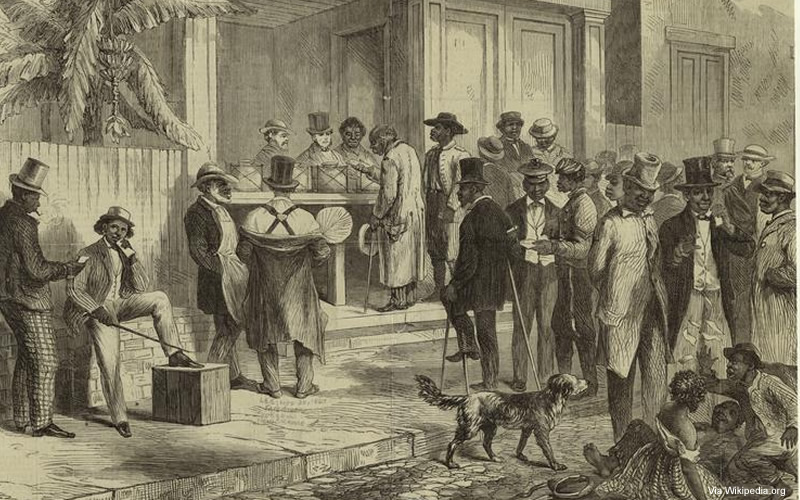
S.C. Encyclopedia, continued: part 2 of 2 | Most white South Carolinians never admitted the legitimacy of the Republican government. Claiming that Republican leaders lacked the wealth, education, and intelligence to govern the state, the former planter-elite derided their opponents in vituperative and bitter language.
Often they did worse. Organizations such as the Ku Klux Klan were formed to intimidate Republicans, especially Republican leaders; they whipped or beat hundreds of victims and murdered scores. Some of those killed were Republican legislators, such as Solomon Dill, Benjamin Franklin Randolph, and James Martin, all assassinated in 1868. From that year until 1871 South Carolina Republicans operated in a climate of terror. Some were able to defend themselves; others were able to move. Most had to be vigilant and try to stay one step ahead of the Ku-Klux, as it was then called. Almost all Republicans had the experience of spending nights in the woods to avoid attack.
President Ulysses S. Grant, elected in 1868, was much more sympathetic to Congress’s view of Reconstruction than Johnson had been. In 1871 Grant’s administration undertook an extensive effort to crack down on terrorism, and South Carolina in particular was under scrutiny. Congress passed the Ku-Klux Act, making it a federal crime to “conspire or go in disguise . . . for the purpose of depriving . . . any person or class of persons of the equal protection of the laws.”
Nine upcountry counties were placed under martial law, and hundreds of arrests were made. Convictions were few since the federal prosecutors were overwhelmed by the number of cases and since most of the attacks had occurred before the passage of the Ku-Klux Act. Federal intervention certainly reduced the scale of terrorism, and the Ku-Klux as an organization was destroyed as many of its leaders fled the state. Nevertheless, the government’s assault on political violence was not a complete success. Attacks on leading Republicans continued throughout Reconstruction and beyond.
White Democrats often claimed that violence was a response to corrupt government, simple chronology disproves this assertion— terrorism began well before the first frauds were committed—but it was accepted as truth by much of the northern press. Perhaps the most important example is the reporting of James S. Pike, first in the pages of the New York Tribune and then in a widely read book, The Prostrate State. In the book, Pike portrayed the South Carolina government as a sink of corruption and ignorance, and he placed the blame squarely on blacks. Most of his accusations were unfair and many were entirely fictitious, but the northern public believed them. Such writings undermined northern will to maintain the southern Republican governments in power.
White Democrats attempted to achieve some level of influence in state politics by several means. In the 1870, 1872, and 1874 elections, they joined with disaffected Republicans to create fusion tickets. These all went down to failure, but the last one did increase the number of Democrats in the legislature and in some county governments. In 1871 and 1874 they orchestrated “Taxpayers’ Conventions,” which met to decry the government’s extravagance and investigate its finances; these too had only limited results.
The means by which they recaptured the state was simply the assertion of force. This strategy, pioneered in 1875 by Mississippi whites, was put into effect in 1876. In the election of that year, the Democrats ran a full statewide ticket for the first time since 1868. Wade Hampton III, South Carolina’s highest-ranking Confederate officer, accepted the nomination for governor, and the other Democrats on the ticket were also former Confederates. The Democrats used a dual strategy: Hampton portrayed himself as a moderate and made appeals for black support, while his lieutenants practiced strong-arm tactics of intimidation and violence. Combined with massive fraud, the strategy propelled the Democrats to victory, at least on the face of the returns; but the returns were clearly fraudulent.
Hampton and the Republican incumbent, Daniel H. Chamberlain, each claimed to be governor. Both parties claimed control of the state legislature. And both parties claimed to have carried the state for their candidates in the 1876 presidential election. Republican Rutherford Hayes was awarded the presidency by a bipartisan election commission, but after meeting with Hampton and Chamberlain he decided not to use federal power to protect Chamberlain’s government.
Chamberlain knew that spelled the end of Republican government in South Carolina. Hampton commanded the loyalty of almost all white South Carolinians, giving him the largest taxpayers of the state and a superior military force of trained Confederate veterans. Chamberlain resigned in April 1877, thus ending Reconstruction in South Carolina. With the Democrats in control of the state, the election system was altered to prevent most blacks from voting. By the 1890s there were almost no black or Republican officeholders in the state, a condition that continued for more than half a century.
— Excerpted from an entry by Hyman S. Rubin III. See full discussion here. This entry may not have been updated since 2006. To read more about this or 2,000 other entries about South Carolina, check out The South Carolina Encyclopedia, published in 2006 by USC Press. (Information used by permission.)
ABOUT STATEHOUSE REPORT
Statehouse Report, founded in 2001 as a weekly legislative forecast that informs readers about what is going to happen in South Carolina politics and policy, is provided to you at no charge every Friday.
- Editor and publisher: Andy Brack, 843.670.3996
- Statehouse correspondent: Lindsay Street
More
- Mailing address: Send inquiries by mail to: P.O. Box 22261, Charleston, SC 29407
- Subscriptions are free: Click to subscribe.
- We hope you’ll keep receiving the great news and information from Statehouse Report, but if you need to unsubscribe, go to the bottom of the weekly email issue and follow the instructions.
- © 2019, Statehouse Report. All rights reserved.

















 We Can Do Better, South Carolina!
We Can Do Better, South Carolina!
Pingback: 3/8: On medical marijuana; Legislative results; More - Statehouse Report - cbdoilslegal